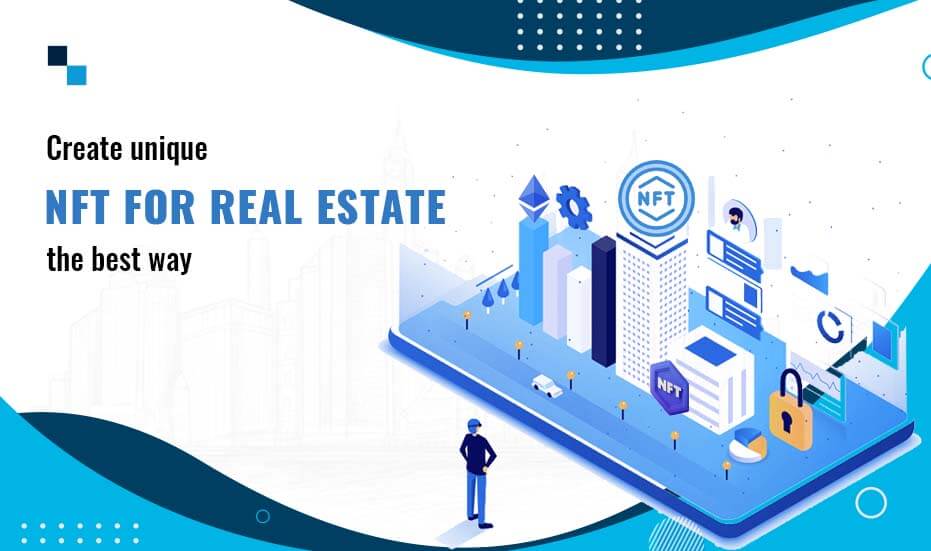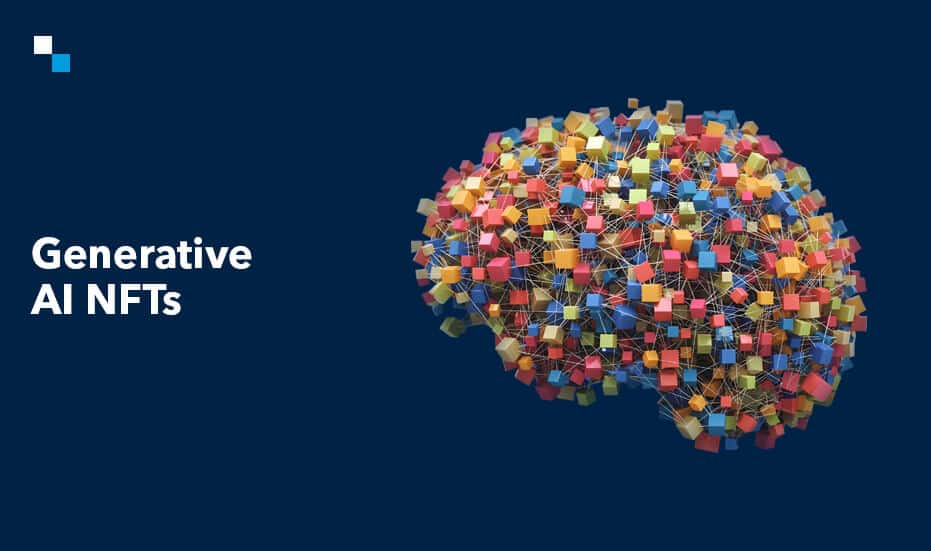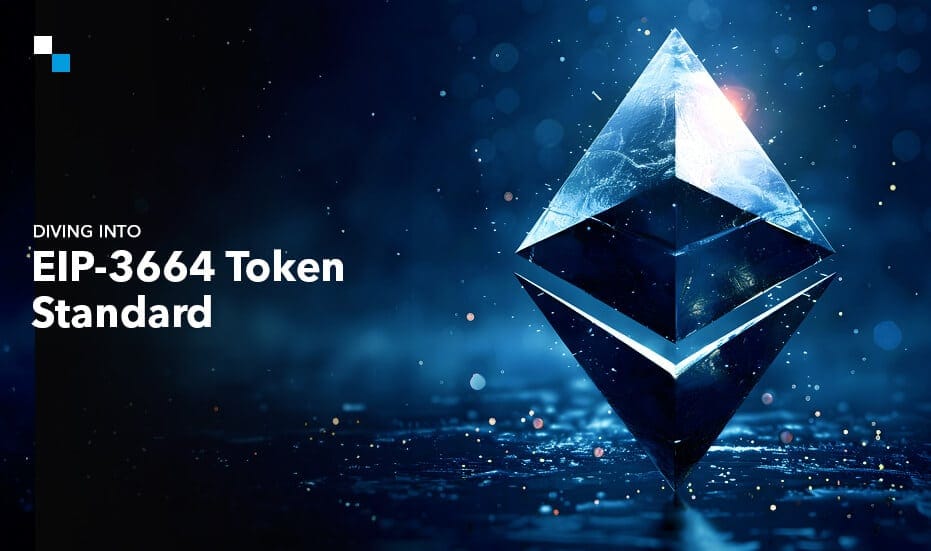
The Usefulness of Blockchain Applications in Healthcare
April 11, 2023
What are the Types of Tokens Incentivizing Token Holders?
April 13, 2023The way we think about asset ownership in both the physical and virtual worlds is changing as a result of non-fungible tokens (NFTs) and blockchain technology. The ownership of an item, whether physical or digital, is reflected by an NFT that is kept on a blockchain ledger. Non-fungible token development is now widely used in a range of industries, including art, gaming, and entertainment, to confirm the authenticity and transfer various rights. In order to change and create value, entrepreneurs are now looking into NFT development services and use cases for new sectors like real estate.
In the real estate sector, they aim to benefit from NFT technologies and blockchain. Businesses are now more interested than ever in use cases like the production of fractional real estate using blockchain and NFT or virtual land in the metaverse. The sale of a home in Gulfport, Florida, in early February 2018 brought Leslie Alessandra $654,310. That transaction altered the course of real estate because it was the first home ever sold as an NFT on a blockchain in the United States. The potential of NFT development services for managing real estate is illustrated by these actual examples of prominent properties’ NFT sales. Since then, many have used cryptocurrencies to buy and sell real estate properties and have done so as NFTs, indicating a significant change in the way that real estate is traded.
Let’s examine NFT in real estate use cases in more detail and how they may prove to be game-changing for stakeholders.
NFT for Real Estate Interplay in Action: 2023 Update
NFTs are undoubtedly the future of the real estate, according to the principles of the connection between real estate and NFTs. You must now be eagerly anticipating the NFTs’ real estate application methods. You must first complete all the legal requirements for assuring regulatory compliance before selling real estate as NFTs. You ought to seek advice from a lawyer and NFT Development Company with knowledge of blockchain technology’s legal implications.
You can proceed to the following stage by minting an NFT once the legal requirements have been satisfied. A description of the property and the legal information related to it can be included in an NFT. In this situation, you would require a real estate NFT marketplace that provides a secure and adaptable setting for the creation of NFTs. The market enables you to include all the documentation, reports, and disclosures required by legal authorities to provide ownership confirmation. Interestingly, you may provide the virtual real estate NFT of your property to potential purchasers on an NFT marketplace. The NFT would be up for bid, and the winning bidder would pay for it with either cryptocurrency or fiat money. In the end, the non-fungible token used to represent the asset grants the buyer full ownership of it.

Non-Fungible Token Development: Use Cases in Real Estate
Real Estate Sales
Converting real estate into NFTs so people can own and trade them digitally is a creative business concept. Real estate transactions can be made quick with the aid of smart contract technologies. This is so that transactions for NFT-backed properties will be powered by blockchain. In this sense, NFT for real estate can help increase real estate liquidity. Real estate is viewed as an illiquid asset since selling it takes a long time and necessitates a lot of paperwork and transactional steps. However, the tokenization of real estate would open up the market to a larger consumer base.
Fractionalization of Property Ownership
Fractionalizing ownership of real estate has now become popular in the real estate sector. Homeowners can now convert their properties into an NFT that can be divided further into several tokens. Real estate transactions can be made quick with the aid of smart contract technologies. This is so that transactions for NFT-backed properties will be powered by blockchain. NFT development services can help increase real estate liquidity. Real estate is viewed as an illiquid asset since selling it takes a long time and necessitates a lot of paperwork and transactional steps. However, the tokenization of real estate would open up the market to a larger consumer base.
Mortgages
With NFT-based mortgages, both borrowers and lenders use NFTs to store mortgage metadata, such as borrower information, lien information (which identifies who legally owns the mortgaged property up until the borrower’s debt is repaid), and the mortgage’s transaction history, on the blockchain. Due to the fact that NFTs, or non-fungible tokens, are one-of-a-kind digital assets that users cannot replicate or exchange, malicious actors are unable to alter essential mortgage data or counterfeit NFT-based mortgage documents.
As a result, NFT in real estate mortgages are frequently secure, protected, and error-free when compared to their paper-based counterparts. They speed up the financing process by reducing the amount of paperwork, as you could imagine. However, for many buyers and investors, the lack of regulation for NFTs may be a serious problem. As NFTs become more common, governments all around the world may consider regulating them and creating some form of the legal framework.
Buying Virtual Property
By linking each digital land parcel to an NFT and recording the transaction on blockchain networks like Ethereum, owners can sell digital land parcels on metaverse markets like Decentraland and The Sandbox. Once a customer purchases a virtual package, the transaction is recorded on the blockchain, and the NFT is subsequently sent to the buyer’s digital wallet. The metaverse platform built by NFT development company can verify who owns a land parcel when a user connects a wallet. Users can engage in governance if the platform is administered as a decentralised autonomous organisation (or DAO) that lets token holders vote on ideas.
NFT Development Services Pave Way for a Potential Future in Real Estate
Predictions are difficult at this early stage because real estate and NFTs are only getting married. In principle, NFTs can make it simple to transfer ownership of stock in real estate investments or virtual properties but don’t count on them to do so any time soon. The few complete units that have been sold with NFTs have been marketed as a set. For instance, the selling of a business that was the real NFT included the sale of a residence in Ukraine.
It is quite challenging to hold entire real estate properties as NFTs under the current real estate regulations. It’s conceivable that they will evolve as blockchain technology and other cryptographic tools become more valuable for tasks like generating mortgages and crowdfunding opportunities. Look for chances to hold a piece of mortgage debt, construction projects, and other group assets as virtual real estate NFT in the interim.

Enter the NFT World with Antier
Non-fungible token development may be difficult for some people to comprehend the idea of paying for virtual real estate. However, to really grasp the potential of NFT real estate, you simply need to consider the meteoric rise of digital collectables, the metaverse, and other NFT use cases. NFT for real estate has so far aided in streamlining real estate processes. Antier is a top NFT Development Company that assists your business in implementing the NFT for real estate to maximise revenue. We back companies and people who have optimistic views on massive futuristic projects. Get in touch with us to make NFT integration and development simple.



